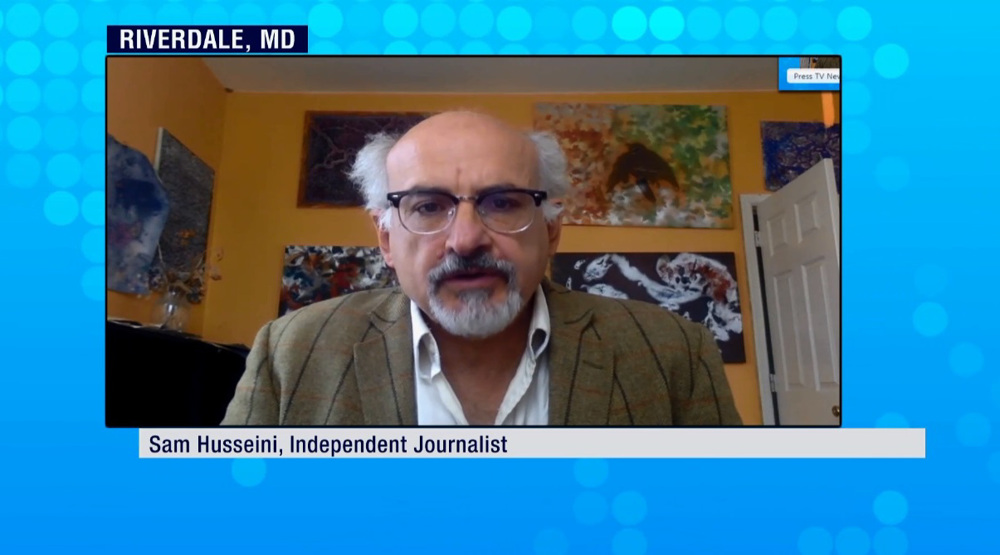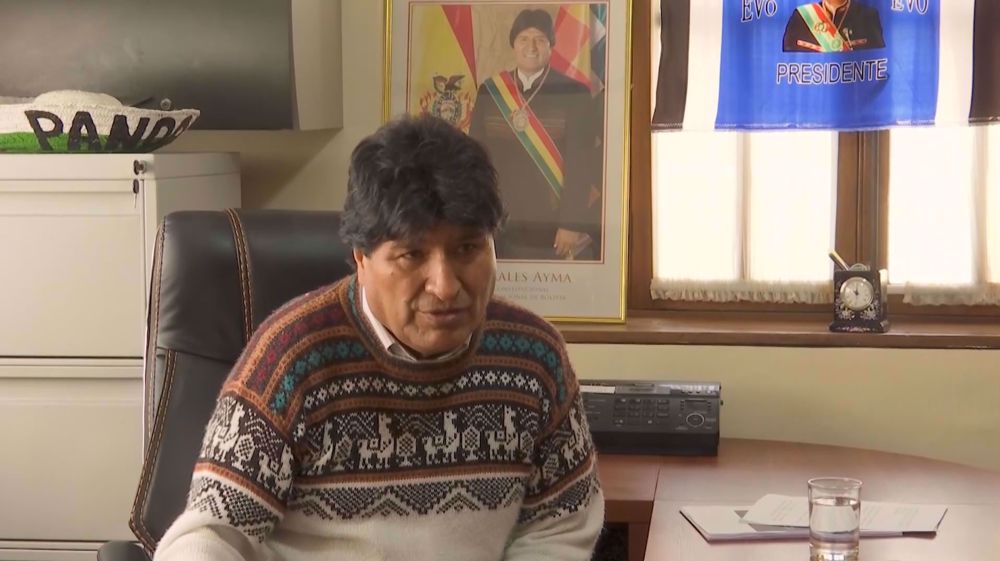Muhammad Ali greatest athlete of all time who backed the Black: Activist
Press TV has interviewed John Floyd, an activist and former Black Panthers member in Washington, to discuss the death of boxing legend Muhammad Ali at the age of 74.
A rough transcription of the interview appears below.
Press TV: Let’s talk a little bit about Muhammad Ali. Many stations are talking about him being the greatest boxer, the greatest athlete ever but I want to look beyond that. Tell me when I say Muhammad Ali what do you think that his legacy will say about him? What is the main thing that he would be known for?
Floyd: We cannot discard the fact that he was probably the greatest athlete of all time. We cannot disregard the fact that when it came time to as we say put his toe to the line that he put his toe to the line. He sacrificed millions and millions of dollars for principle to support black people in this country who were particularly being oppressed during the 1960s and also folks who ..., and we cannot forget the Vietnam War it was black soldiers who suffered the greatest number of losses per their numbers. They were used as cannon fodder during the so-called Vietnam War.
Muhammad Ali is a great man. He was what we call a good brother. He stuck to his principles, he loved Allah, and we are just very proud of him and kind of sad today that he has left our mist.
Press TV: You just talked about him standing up and not allowing himself to be drafted though as you said he paid a heavy price for that. What has happened in general in the black community? Do we still have entertainers, do we still have athletes who are willing to pay that price because of the cause, do we have that today?
Floyd: Yes we certainly do. Things have changed a great deal. I will be 74 this year so I knew Muhammad when he was Cassius Clay and I watched his involvement, my involvement, a whole lot of things. Our generation changed and it has changed black America forever. The people that we dealt with in the 60s have come to realize that we are human beings, that we have a right to our own ideas about what religion we want to follow despite some clown like Donald Trump.
Press TV: Let’s look at that that he stood at a time that people did not even, probably the majority of Americans, did not even know very much about Islam or had heard about Muslims but he actually was a PR person not only for Islam but in general for black America for fairness and he was fearless. What was the root do you think of that fearlessness that we saw not only in the ring but also verbally during interviews when he was attacked for his beliefs?
Floyd: I remember and I asked your producer if I could say several things that come to mind. One of the things was it was Malcom X. Malcom X was the first person that most of us ever heard of who talked about Islam, we never heard of Islam but he started proselytizing and Muhammad Ali was his biggest in essence person who joined the Islam religion, Islamic religion.
It was just the times. You have to understand that Cassius Clay, Muhammad Ali, grew up in Louisville in the south of America. It was a place where black people could not sit on a toilet with a white person, could not drink from a water fountain with a white person, could not go to certain places because of the color of their skin and that he realized that he was to be the world champion. He was this greatest athlete, he was the one who ... won an Olympic medal for America and he felt like he was as good as anyone and that was the way he carried on his life.
Muhammad Ali was as Amiri Baraka, say it, he was our manhood. He was the example of our manhood. He was a great athlete, he was a good person, he was funny, he could be funny and he was just a ..., I mean we do not see the like of him it only happens once or twice every hundred years.
Press TV: And we look at his lifestyle in general, you talked about him basically just being a good person. Looking at an interview actually with of course former boxer George Foreman and he said, actually I am sure many of us remember the Thrilla in Manila or the other one actually that he had the combat with George Foreman and then he said that actually when Muhammad Ali of course verbally he was at the top of his game and always the major PR person actually promoting boxing, he said he did so much for boxing and also for him. They were friends all along. He was trying to promote not only the fight, the boxing industry and fellow boxers. What does that say about him as a person?
Floyd: Again we have never seen his likeness before or after. Muhammad Ali was the greatest salesman of all time. What you talk about was the Rumble in the Jungle. By the way I want to give just homage to a man by the name of ... was Don King who was a boxing promoter. He is PR man. He is the one who coined the phrase Rumble in the Jungle and also the Thrilla in Manila.
But anyway that aside, Muhammad Ali was not only the greatest athlete, I did not just say boxer, I said athlete and I must tell you I wonder about his Parkinson’s. I wonder if the United States had not taken his title away from him for four years and so that he fought beyond, he lost those four years and then he came back and fought beyond the top of his talent, would he have even had Parkinson’s. I do not know the answer to that question, I am not a medical person but it has occurred to me. I remember him as a young man. I remember him as Cassius Clay. I remember him being at my fraternity kappa house on Crenshaw Boulevard in Los Angeles and us partying together and he could dance, that was the other thing. A lot of people do not understand that Ali was just somebody ... he just had this charisma.
Yemen’s intelligence agencies bust members of Israeli espionage network
Taliban ban journalists from working for London-based broadcaster
VIDEO | German police clash with protesters trying to storm Tesla plant
Iran strongly condemns 'unwise' Canadian motion against IRGC
VIDEO | The case of Trucknet, land route through West Asia
India’s top opposition figure gets bail to vie in elections
VIDEO | Death toll from floods in Brazil hits 113 as rain returns
Pentagon orders withdrawal of all US troops from Niger













 This makes it easy to access the Press TV website
This makes it easy to access the Press TV website